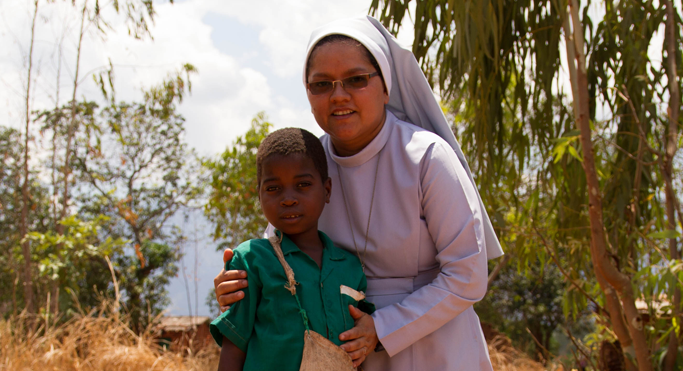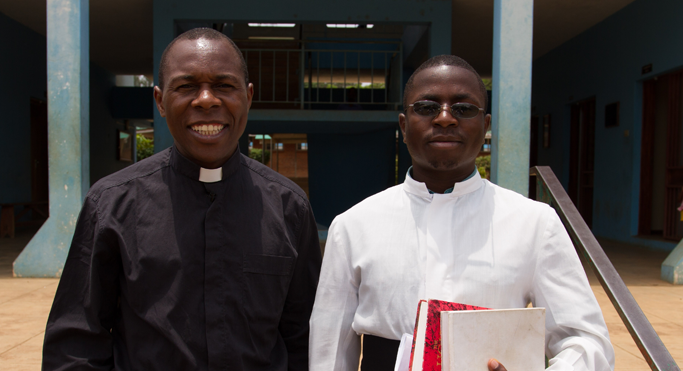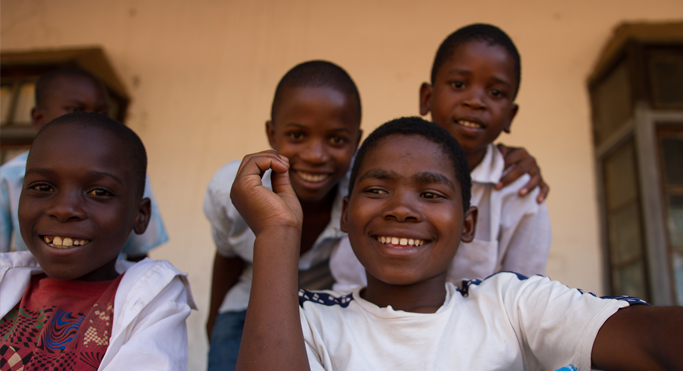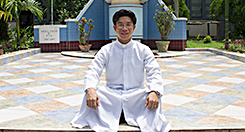 Our perception of Ethiopia is still strongly linked with the devastating famine of the early 1980s in which one million people died. Much has happened since then, but despite the recent economic growth in this east African nation, it remains one of the poorest countries in the world
Our perception of Ethiopia is still strongly linked with the devastating famine of the early 1980s in which one million people died. Much has happened since then, but despite the recent economic growth in this east African nation, it remains one of the poorest countries in the world
Millions of people benefit from the Catholic Church’s presence in Ethiopia, such as the Menja, who live on the fringes of society in the south-west.
The Menja people
Overcoming the marginalisation faced by the Menja is one of the challenges faced by the Little Sisters of Jesus, who are doing all they can to overcome the discrimination and hurt endured by the Menja for centuries.
Sister Karlo, from the congregation of the Little Sisters of Jesus, helps to support families in Wush Wush. The majority of families are part of the Menja, whose cultural differences, in particular their consumption of certain wild animals, mean that they are considered ‘untouchable’ by the majority Kaffa population.
Exclusion and isolation
The Menja are excluded from festivals and meetings and historically, Menja people have been forbidden from entering Kaffa people’s houses, sitting together with them at a table or eating together with them at all.
Education and growing awareness have led to greater acceptance of the Menja, but their lives are still marked by social isolation and discrimination. Sister Karlo refuses to accept this situation, so seeks direct contact with Menja families.
To support missionaries like Sr Karlo and communities like the Menja, please click here >>
Kenito’s family
For Kenito and his family, home is a simple round hut made of branches and clay. Kenito grows maize and bananas in a field next to the hut to support his family. His two children – four-year-old son Israel and three-year-old daughter Mekidse – run barefoot and rub their eyes constantly, waving away the flies that swarm around their heads.
Their mother, Tigist, looks at their red eyes with concern and says, apologetically, ‘We have no clean water here. I have to fetch it from far away every day.’
The Sisters invite the two children to their nursery, where they will care for them and offer them a chance to wash and have a hot meal. Kenito promises to bring the two of them along, even though the nursery is a long way away.
‘Today, your God and my God met’
Sr Karlo remembers her first days in Wush Wush very well. There were only a few Catholics among the Menja. ‘Our Menja neighbours were all very shy,’ she explains.
‘Once in a while, I would speak to a lady who always sold us firewood. One day, I invited her to come into the house, but she was embarrassed to do so. I told her, “Please come in, Alemeto, you are our friend.” Finally, she came in. We sat together, ate bread from the same plate and drank coffee together, as is traditional here in Ethiopia. When Alemeto left, there were tears in her eyes, and she said, “Today, your God and my God met.” I had to cry as well – with joy.’
Much has changed since then. When the sisters invite people to festivals, the Menja families they have befriended come too.
And they come to Mass, as well. They say, ‘You are our sisters, you are our friends. We come to your church, where we are accepted and understood. Now, it is our church, too.’
Let’s work together to build a future of hope in Ethiopia. Find out how you can help by visiting missio.org.uk/wms





